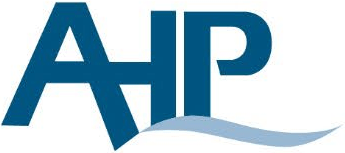
The Will to Heal: Recover
Recover
Video Transcript
Off-screen: We have a tremendous problem with individuals that need help.
Off-screen: Data, statistics just looking at the news will tell you something is very broken. Opioid use disorder, substance use disorder, those numbers are absolutely through the roof.
Marlies Perez: People really, genuinely want things to be better, but a lot of people don’t understand Behavioral Health.
Dolores Huerta: There’s a lot of fear, a lot of guilt, a lack of understanding of what Behavioral Health is.
Marlies Perez: These aren’t moral failings these aren’t people—like, who chooses to have a mental health disease? Who chooses to have a substance use disorder? Nobody chooses to be homeless.
Patrick Gauthier: We’re at roughly 225,000 unhoused Californians.
Mark Faucette: There’s a need everywhere. If you have a waiting list and there’s people trying to get in a drug treatment facility there’s a whole bunch of people not getting in there.
Maurice Lee: We would be up-in-arms if it was someone with a heart attack who arrived at the emergency room, and they told him, “Sorry, we can’t serve you today because we don’t have the capacity.”
Gabriela Jimenez: And if we have the power to do something to help our community and to help those that are suffering why not do it?
Mark Faucette: This is historic. There’s never been an opportunity like this to build capacity in this kind of way.
Patrick Gauthier: The goal for this epic level of investment is access to care.
Tiffany Malone: The communities that need mental health care, Behavioral Health Care, the most are the marginalized, hard-to-reach communities. It can be our inner city, you know, low-income communities. It can be rural communities.
Dolores Huerta: We want to reach out to as many people as we can and say, “Look, this is not an isolated issue. This is an issue that affects every single one of us.”
Angel Galvez: Well, it’s important that our community have access to care because without having access to care you can’t really improve your life.
Salvador Hernandez: I used to come here for hope. I was hoping to see a person that can speak to me spiritually, culturally, and about our heritage. I found it here. This is a blessing to me and I’m sure to many others.
Angel Galvez: That’s really the mission. The mission is to see this organization be the light of the Native American community. Be that beacon where they can see it from afar and come and say, “Hey, I need help.” And whatever it is they need we’re going to make sure they get it.
Brandon Fernandez: So, one of the things that CRI-Help is known for is serving individuals from diverse socioeconomic backgrounds. As of last year, 95% of the people that we admitted into treatment were Medi-CAL eligible beneficiaries and we’ll look to extend that reach here in Lincoln Heights. From the time that you pick up a phone and you talk to a receptionist, to meeting with an intake counselor, meeting with a primary counselor, working with your therapist, all the way up to the medical director—we seek to employ persons who are Spanish speakers and we believe that the infrastructure that we’re looking to launch in the Lincoln Heights neighborhood will be something that is culturally responsive and can provide services to adults who are monolingual Spanish speakers.
Chris Yingling: ABC has what we call a full continuum of care, which means that we can take somebody in at the detox level. We have a psychiatrist or a medical director so we can pay attention to their mental health disorders as well. And then we can transition them and slowly disband the structure down to the outpatient level of care. And we even provide housing.
Alexis Pollard: The benefit of our programs is it saves families. It mends families. It brings them back together. People are living a healthy fruitful life. So, I think in all aspects it benefits even people that don’t have addiction.
Rhyan Miller: That’s a lot of recovery and a lot of human beings that are getting treatment that couldn’t get it before.
Chris Yingling: I can’t stress it enough; facilities of our type would never be able to afford to build a project of that scope. It’s unprecedented and it’s historic. The help that our communities are going to receive is going to multiply, you know, drastically over the next couple years.
Bamby Salcedo: Trans, gender nonconforming, and intersex people need to have access to care, and that is one of the reasons why we exist as an organization. So that we can not just advocate, but also, you know, in some ways support and provide the care that our community needs.
Alexandra Magallon: The TGI community that is homeless is out in the Hollywood and West Hollywood areas, so for us that is our epicenter. That is where the need is at.
Bamby Salcedo: I’ve never seen a grant this significant. You intentionally and meaningfully invest in the livelihood of people, then that’s how you create the change, right? And make the difference that needs to happen in people’s lives.
Marlies Perez: These are things that are going to be truly lasting, and so when the day is done, there’ll actually be these physical structures that, like, build out that access. Even though it’s a tremendous amount of change we’re taking on in California, that once we actually arrive and get there, it’s going to be phenomenal. And then I want to be a model for other states and help them get there as well, because I don’t just care about people here in California; I care about anybody that has this disease.
Maurice Lee: For myself, treatment on demand was essential. It saved my life, and it has saved millions of lives across the United States.
Doug Bond: I think we often hear about the issues, but we don’t hear about the success enough. Anytime we expand more resources for people that are marginalized and disenfranchised, for the community, we’re bringing hope to the community.
Patrick Gauthier: And remember, we’re doing this to save lives.
The Will to Heal: Recover, is a poignant documentary that traverses the state of California, capturing intimate interviews with healthcare professionals, state representatives, and community members.
The documentary highlights both the strides made and the considerable work still needed, the film seeks to inspire hope and advocate for a future where access to treatment and peer support are available for all individuals grappling with SUD in California and beyond.
All information and data presented in this video are accurate as of December 6, 2024. Future updates may not be reflected.
About Us
Advocates for Human Potential, Inc. (AHP) creates powerful solutions to improve health and human services systems. By partnering with the federal government, states, municipalities, healthcare systems, and nonprofits, we help people experiencing the greatest disadvantages lead full and productive lives. We are national leaders in training and technical assistance, research and evaluation, publishing, and dedicated consulting. On issues from workforce development to mental health, substance use disorders to housing and homelessness, we help our clients enhance behavioral health care through systems change. AHP was founded nearly 40 years ago to develop solutions for some of the biggest social infrastructure challenges across the nation. Our company has offices in metro Boston, Chicago, Los Angeles, Phoenix, and Tampa. Find out more at www.ahpnet.com.
For press inquiries, please contact newsroom@ahpnet.com.
